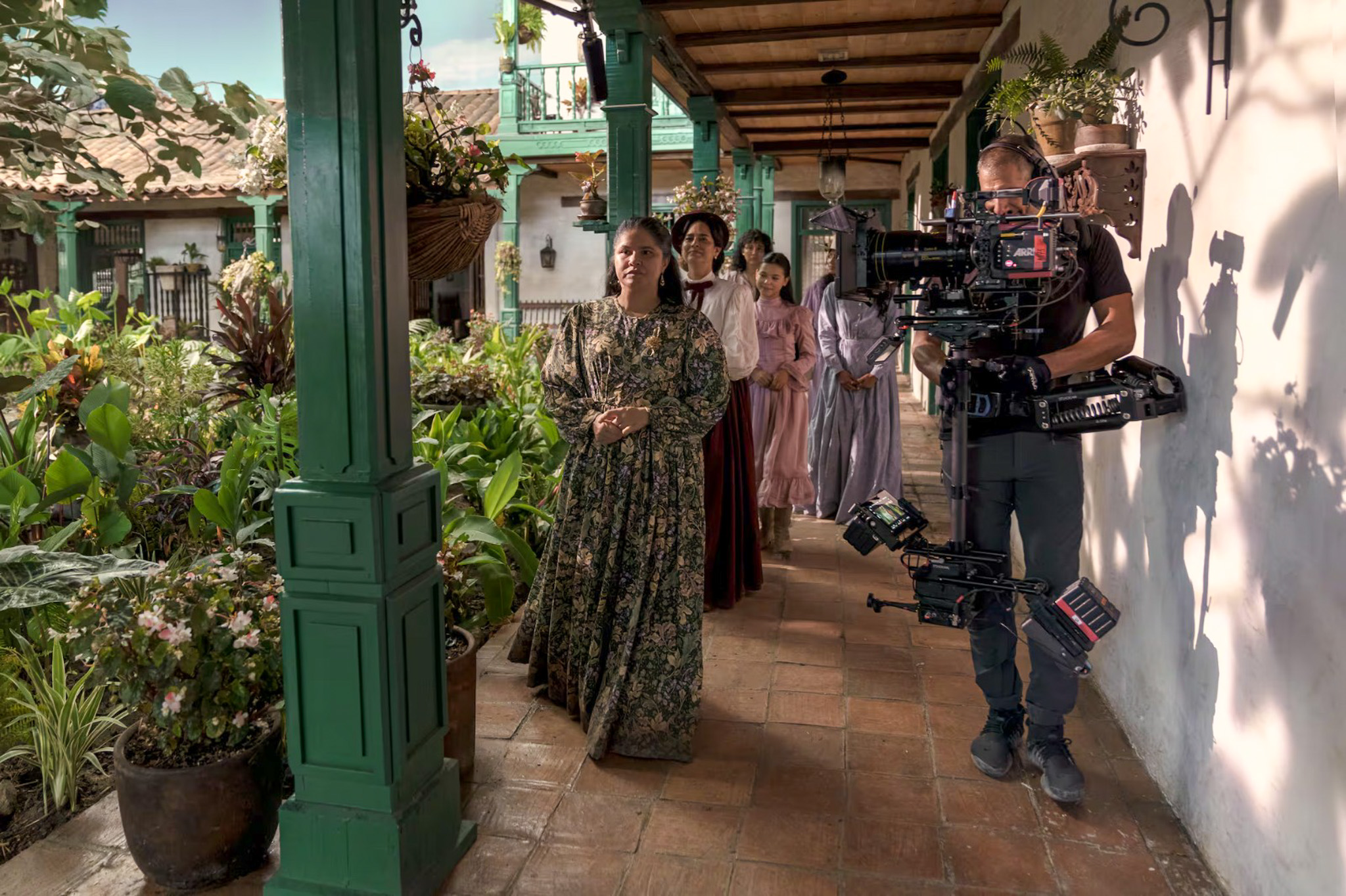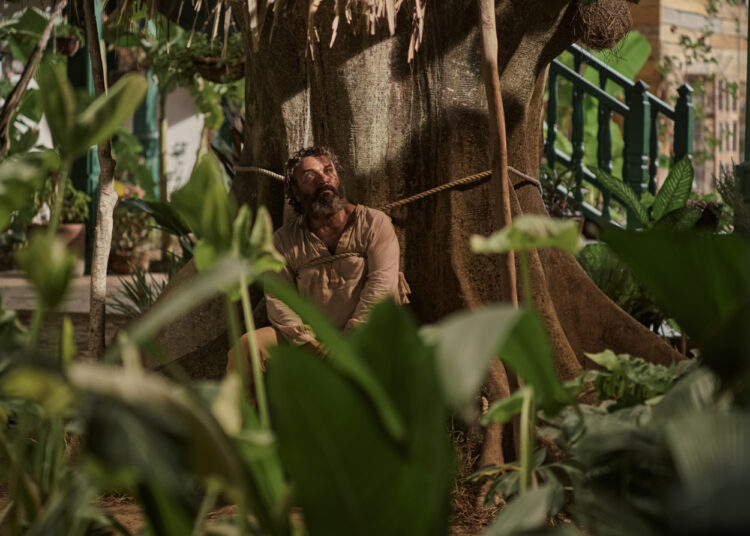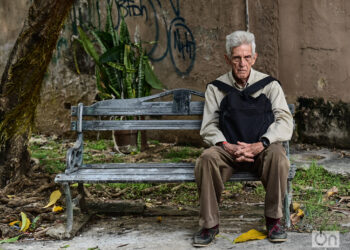From what has been revealed, I have the impression that Netflix is not going to disappoint, contrary to many of the predictions launched. It seems they have made a must-see series with One Hundred Years of Solitude.
It has been said a lot that this cinematic venture will modify how we have imagined Macondo and its beings until now. There are those who are nostalgic or fuming for that reason, a priori, and without giving any benefit to the audiovisual that premiered on December 11.
The book, published in 1967, with translations into more than 40 languages, is one of the most widely disseminated of Latin American literature. The series, by giving a face, voice, accent, physical expression to the characters, will inevitably form certain perimeters to the fantasy of its millions of readers and to that of García Márquez himself.
Surely, the audiovisual version has had to resort to pruning scenes, ellipses, temporal modifications. Translating to the screen such a long novel, which is like an incessant burst of life, where many things are always happening and in which, at the same time, there is very little dialogue, must have required a very sculpted script to be able to fit one format into another.
Álex García, co-director with Laura Mora, has said that the most important thing was to respect the tone of the book and that they believe they have achieved this. When they had doubts, “we always returned to the book.” It was their Bible, he explained. However, none of us in the audience can expect the novel we carry in our memory to appear on screen, just as we have constructed it.
Since I knew all this beforehand, ever since Netflix announced that it would be enrolling in this venture, I thought I should read the text again. For the last time, before being “contaminated,” before “they spoiled it for me.” So, a few days ago, I began my third reading of the novel, slowly, without rushing. I will postpone as much as possible exposing myself to the television production while Macondo is still standing in my book.

The first time I read One Hundred Years of Solitude I was 14 years old and for me, it meant, above all, the possibility of overcoming the length of the thick volume: I was an untrained reader and it was the most important door to adult literature. In that first round I had the yellow-cover edition of Casa de las Américas at hand (I owe you the year).
I remember having made collateral notes on some piece of paper about the intricate genealogy of the Buendías, so as not to get lost in those incestuous twists and turns. I imagine that it has been an inevitable resource for many as well.
A great deal of the details and interstices of the stories escaped me. I was left with the levitations, the butterflies, the smell of the begonias, Rebeca’s singular appetite for the earth, the thread of José Arcadio’s blood reaching Úrsula Iguarán’s kitchen. Kaleidoscopic scenes of colossal imagery. And the ice, of course. Under the hot and humid tent of the gypsies.
I grew up with all that. That is to say, I am who I am, also, because in those days when I was beginning to shape my own mental margins and channels, I put those magic Macondo possibilities in my brain, with no other intermediation than that of the printed page and my father’s recommendation.
A second reading, at thirty-something, brought back a book in which I was able to discover, in addition, some of the author’s literary tactics. The historical plane, although it again fascinated me, gave way to the discovery of Garcia Márquez tricks in this sort of “total book,” also a reproductive book, which earned it its brilliant pass to posterity.
In the first two immersions in the novel, the big house, territory of the lineage, was, in my mind, very similar to the mansion that occupies number 214 Castillo Street between Serafín Sánchez and Calleja, in Morón, where my great-aunts lived until the end.
It had, just like that one, enormous rooms, an interior patio planted with roses, adjacent to a corridor that formed the backbone of the whole house; a kitchen, the vital center for the family, open to the sun; a last room that led to the dirt patio, where the subsistence pigs were fattened, locked in cages made of planks, and from where the peas that fed the native hens and their dawn roosters could be thrown. Those 1980s prodigal in socialist peas!
The wardrobes, beds, and dressers of Angélica and Celia, my aunts, one single and the other widowed, were from another era and without luster. They were the reference with which I furnished Amaranta and Rebeca’s rooms imaginatively. The substitute for the chestnut tree to which José Arcadio Buendía was tied was also there: a skinny lemon tree that, over time, by the way, stopped bearing lemons. Just like the little wild cashew leaves that flooded the fence, they dried up.
My Macondo was Morón. Perhaps because of its tempo, its simplicity, and essentiality; that of a world that I lived through my grandmothers. Because of the day-to-day conversations; the sacred hearts of Jesus in those sunny and dusty houses of my relatives; the stories of the chatter between the Leyva and the Sarduy; the absolute decision of Irene (Nene), the matriarch, to never speak again; the thinness of Fico (Federico), the patriarch, sitting on a stool, with his legs crossed and his hair very white. He died trembling, with Parkinson’s, helped by his daughters, unwavering caregivers.
And now Netflix will erase with a stroke of the pen that very intimate evocation of mine, building the “real” house, just as it was built by Gabo, José Arcadio, and Úrsula. And a story, landscapes, people in which many of us have been seeing ourselves, with deep nostalgia for decades, will be even more Colombianized: trying to understand ourselves.
As it will be, without remedy, the only important thing I wanted to say here, after all these paragraphs, is that, whoever can, read. Read this great book, before the glare of the screen sweeps it away and it becomes the most important reference of a work like One Hundred Years of Solitude, embroidered to portray us, admire us, and delight us in that powerful magic that distinguishes and liberates us.








